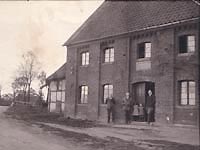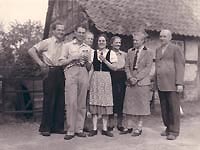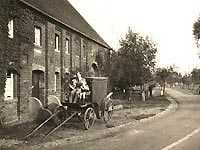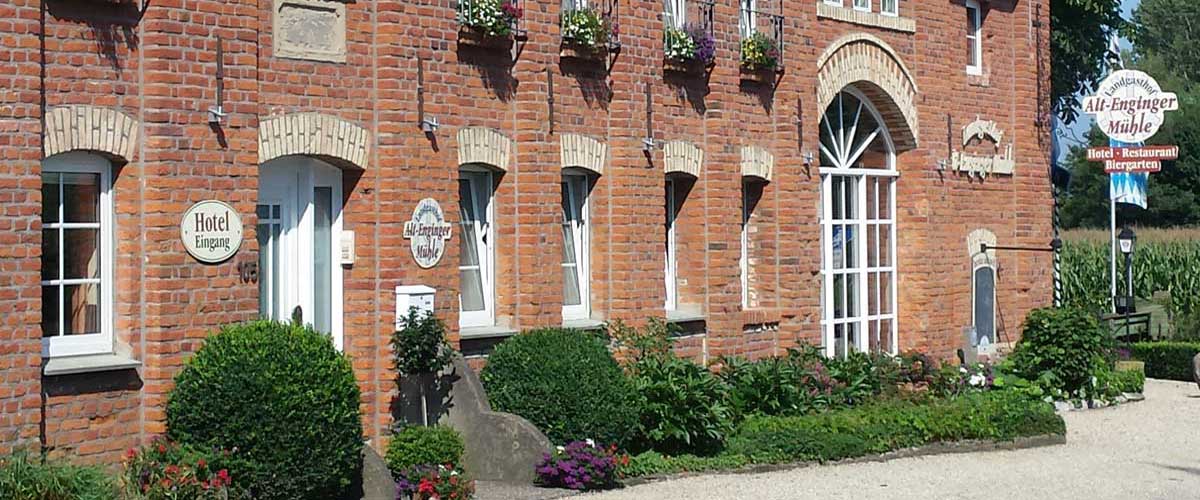
the building belongs to one of the oldest houses in the area of Paderborn.
In 2001 the hotel and restaurant has been built from an old water mill and farm. The comfortable and historical atmosphere invites you to stay.
We are looking forward to welcome you.
The Wahden family
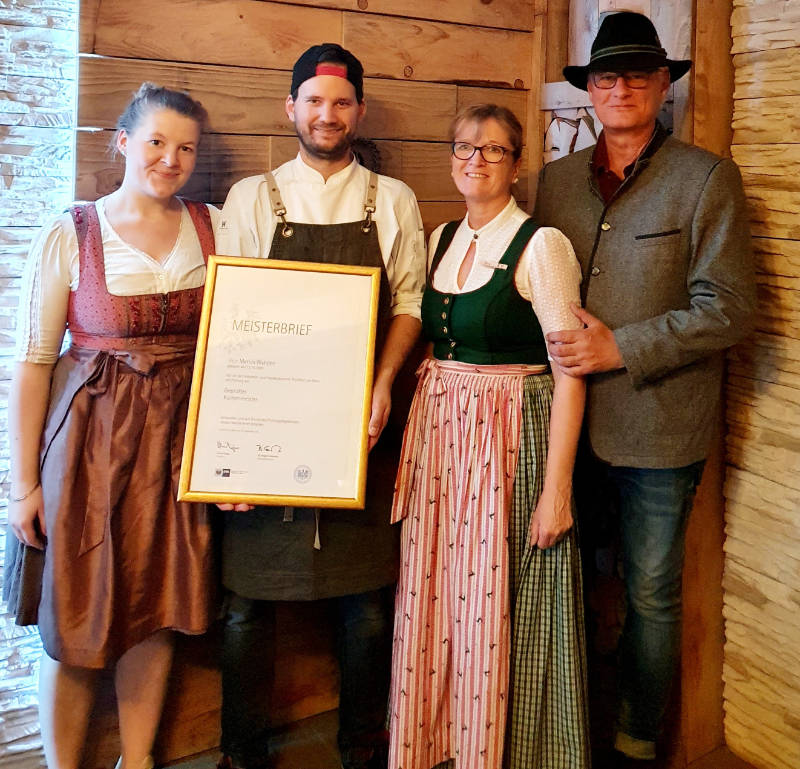
A total of 15 hotel rooms - exclusively non-smoking rooms - with 30 guest beds are available to our guests, divided into 6 rooms, 2 flats and 1 holiday flat in the main building and 9 rooms in the adjoining guest house.
The rooms are lovingly furnished, some with antique furniture, but of course you don't have to do without modern comforts. All rooms are equipped with shower/WC, hairdryer and TV.
Wireless LAN is available to our guests free of charge throughout the house.
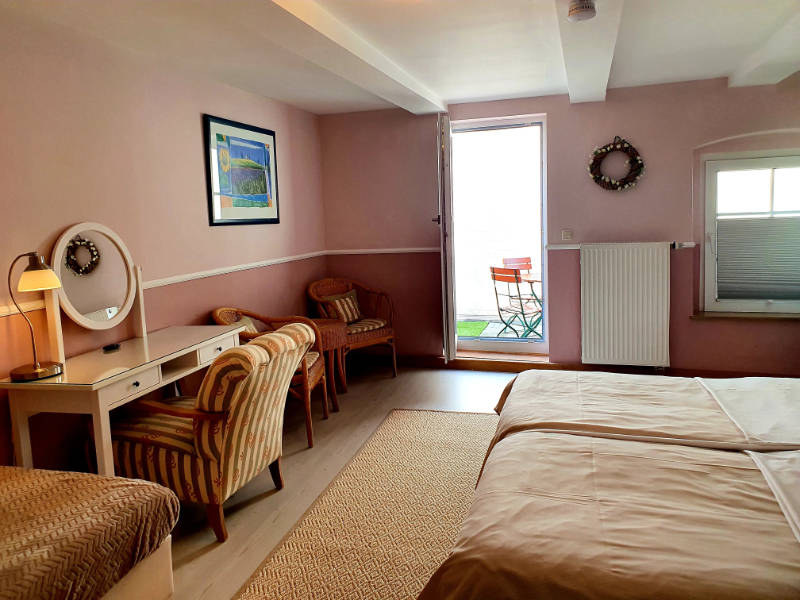
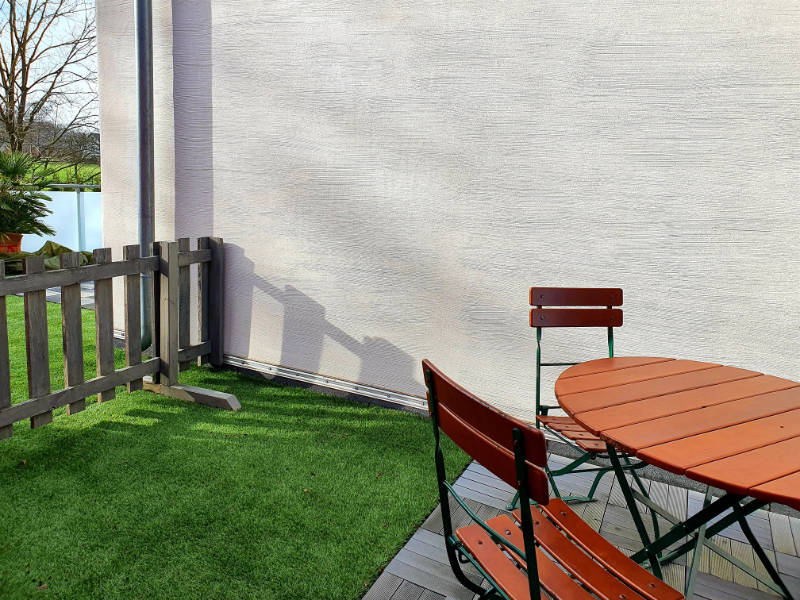
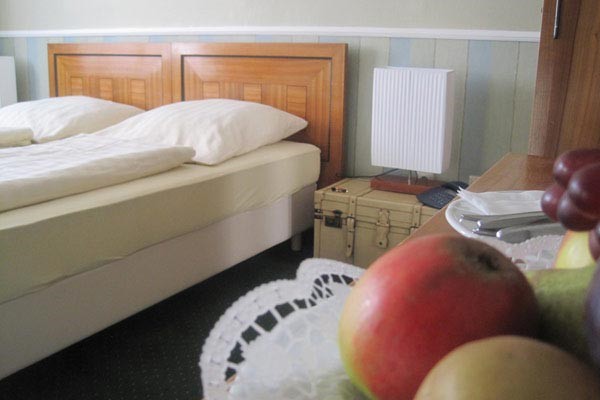
Prices per room and night (incl. VAT):
Single room: 78,-- Euro
Twin and double room: 105,-- Euro
Apartment "Mohnblume"
on the ground floor: equipped with bath/shower, WC, hairdryer, flatscreen TV, telephone, mini-kitchen and terrace
Apartment "Kornblume"
on the 1st floor: equipped with shower, WC, hairdryer, flatscreen TV, telephone and balcony
Apartment prices per night:
128,-- Euro for single occupancy
149,-- Euro for double occupancy
The holiday apartment (in the attic of the main house) is 62 square metres in size and is divided into
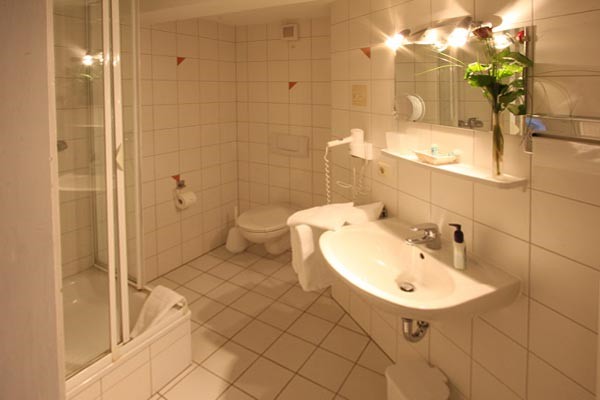
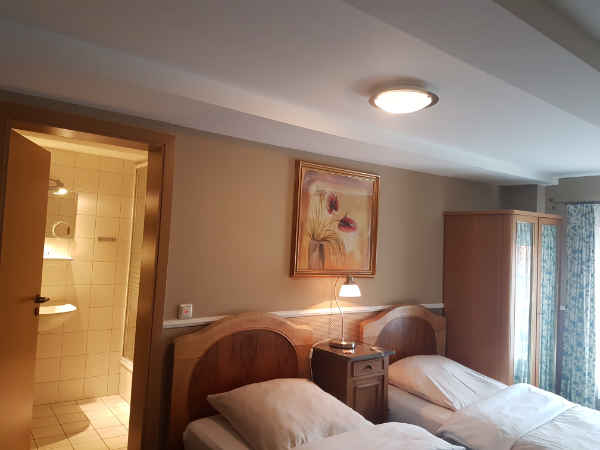
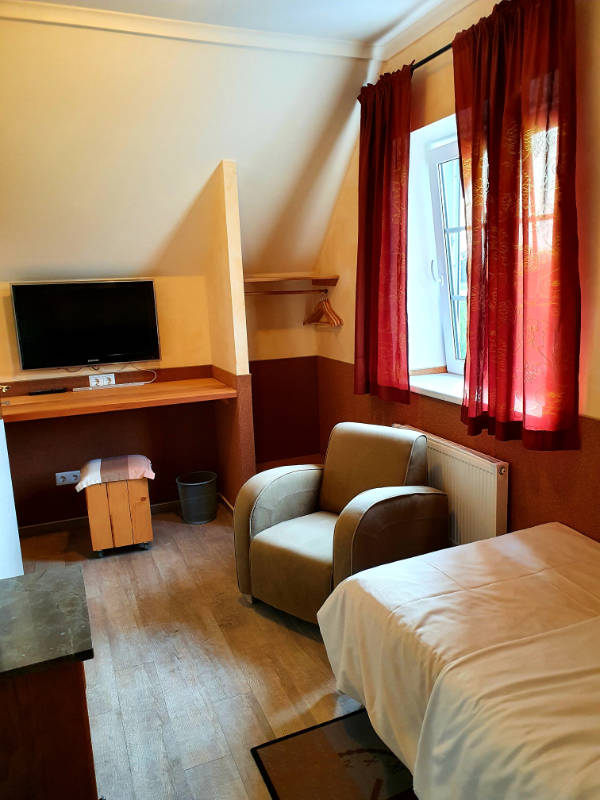
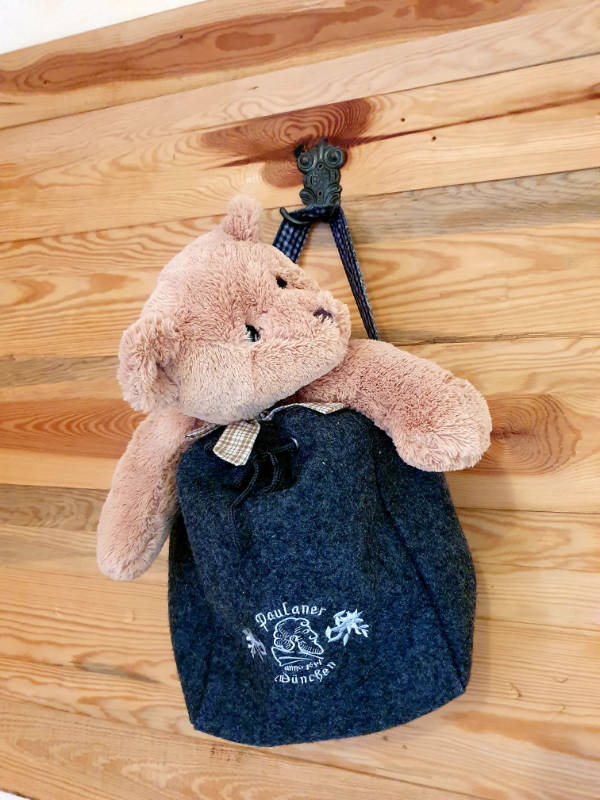
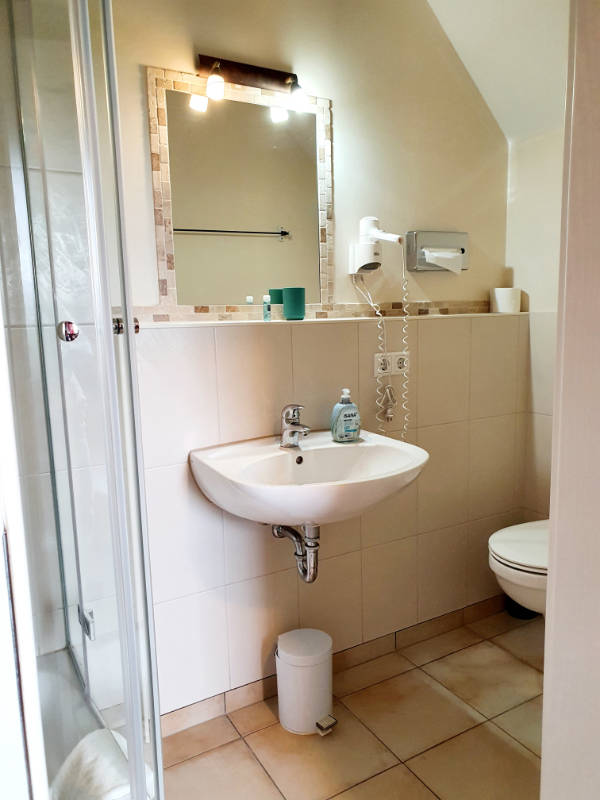
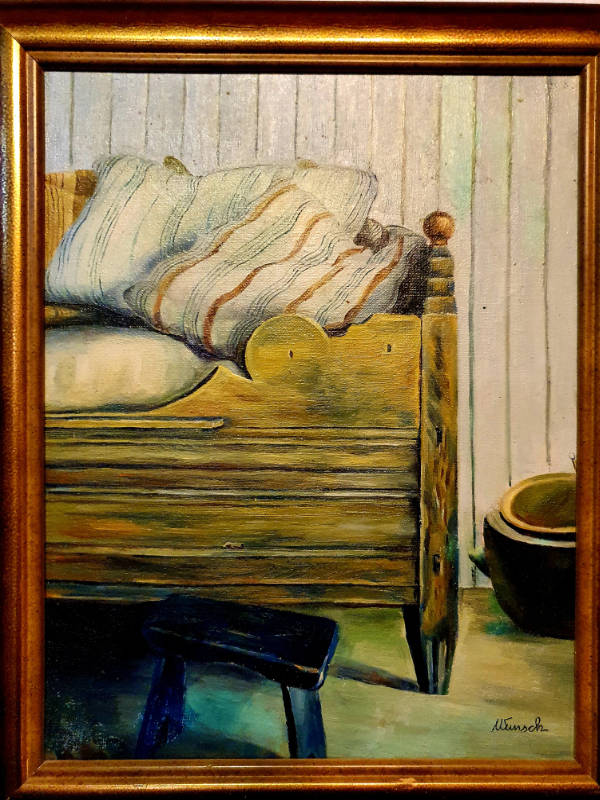
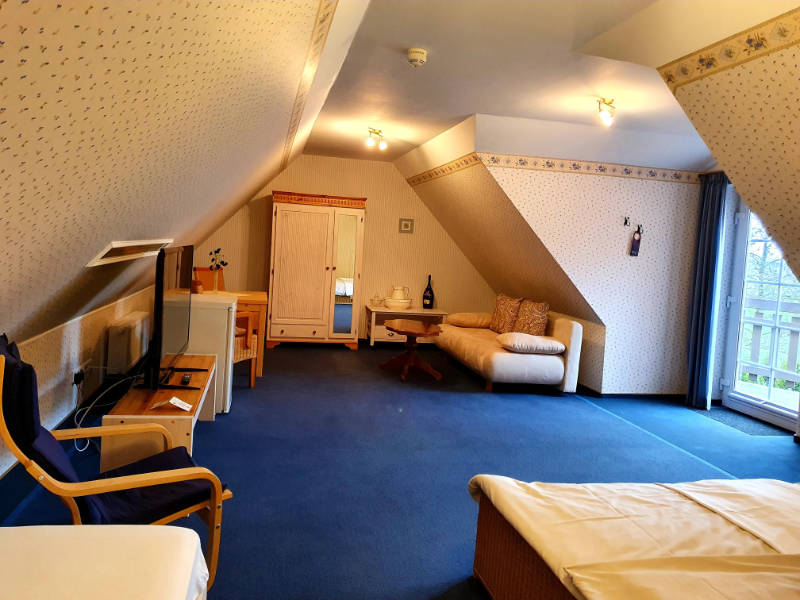
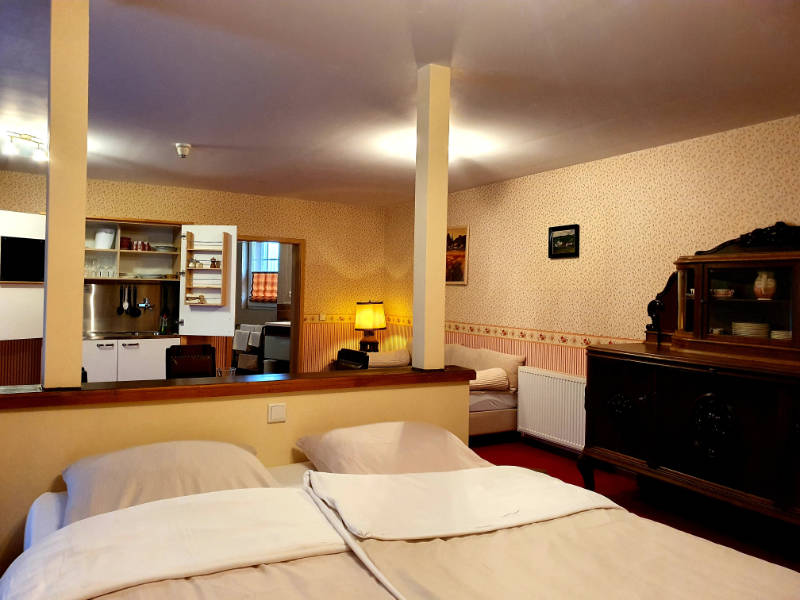
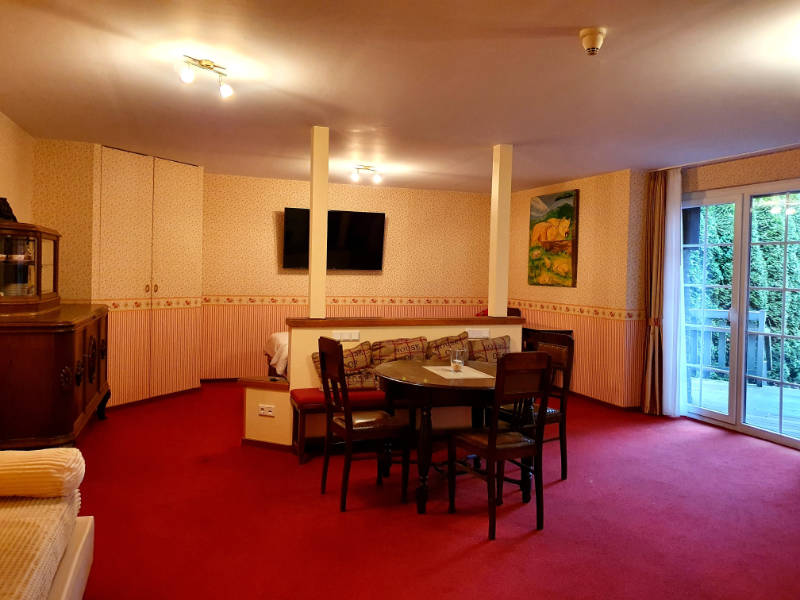
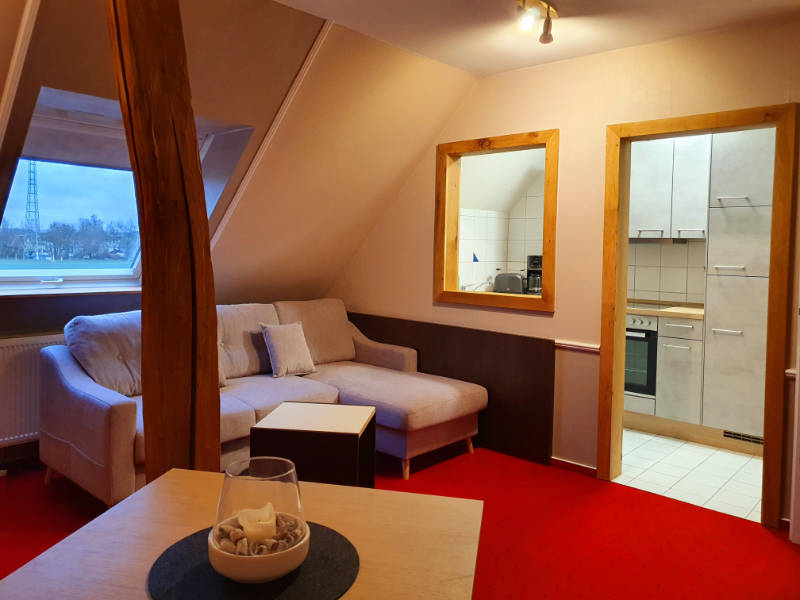
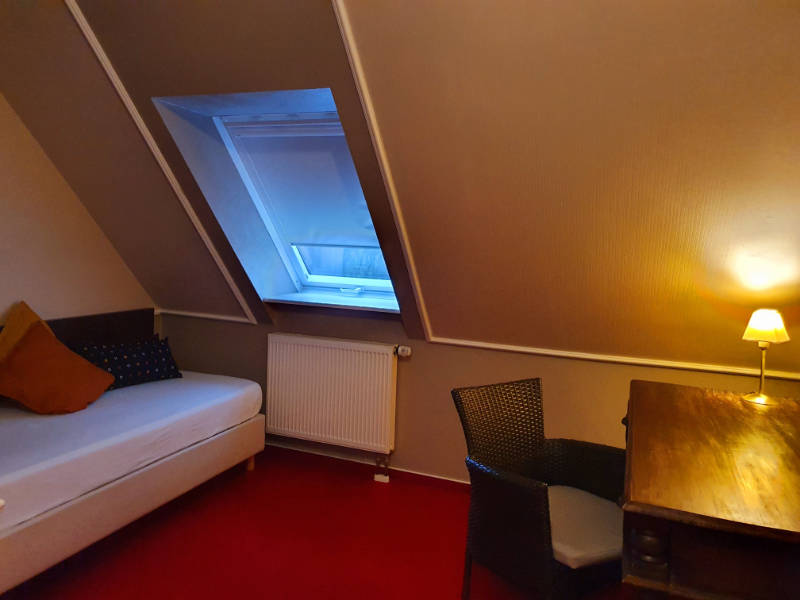
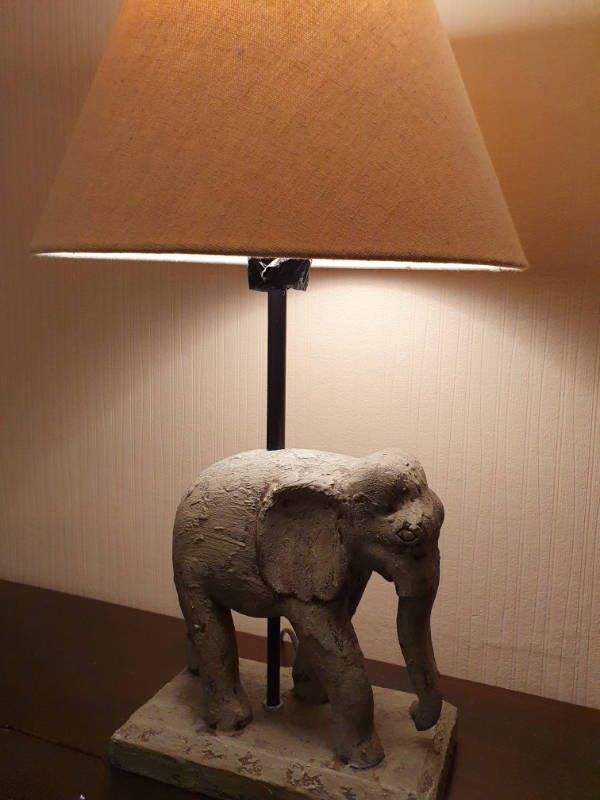
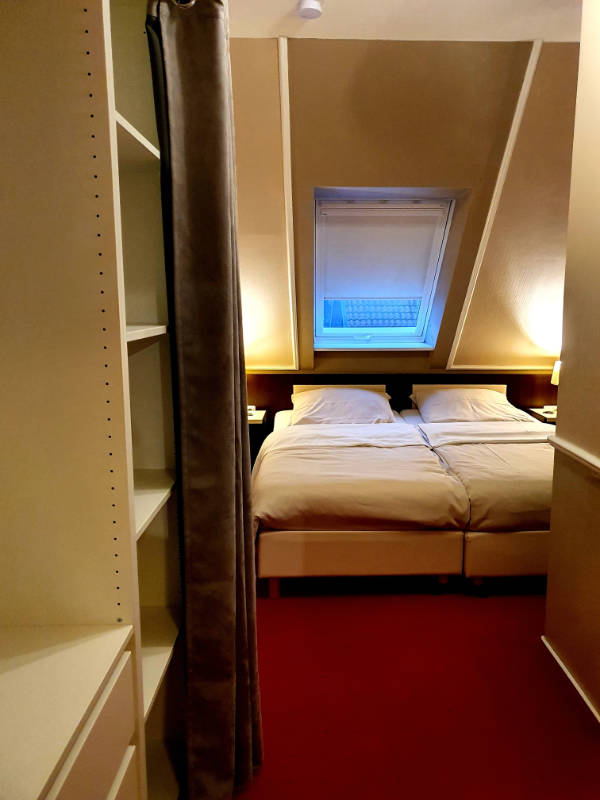
The restaurant offers a suitable and comfortable ambience for all events. Our kitchen provides seasonal dishes, international, Bavarian and regional specialties, including vegetarian and vegan dishes, of course.
We will do our best to make your wedding- or birthday party, company- or Christmas party to a special event. We offer 100 seats on different levels in a cozy and traditional atmosphere. Great menus and buffets, as well as an up-to-date wine selection await you. We are pleased to present you our menu- and buffet proposals.
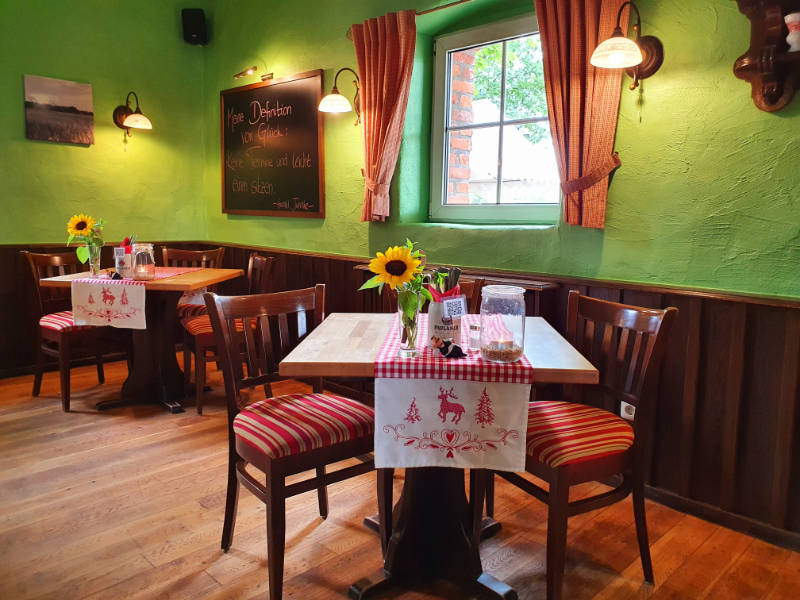
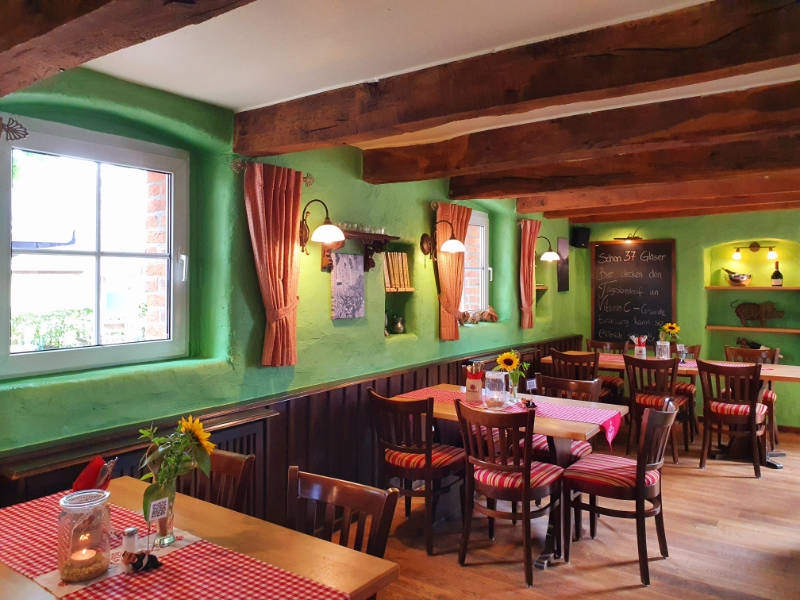
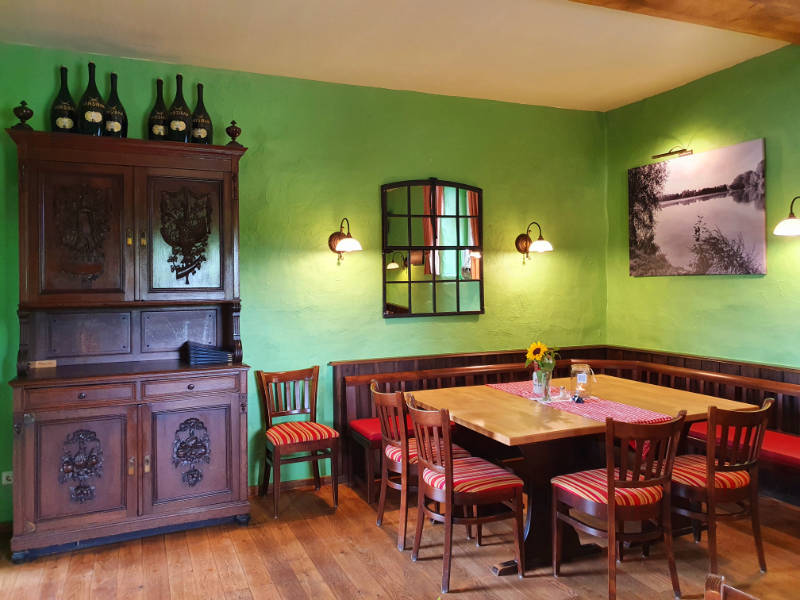
Starting in spring our beergarden brings you into a relaxing mood where you can refresh and come together with colleagues, family and friends.
Enjoy the lovely countryside in the shadow of mighty chestnut trees.
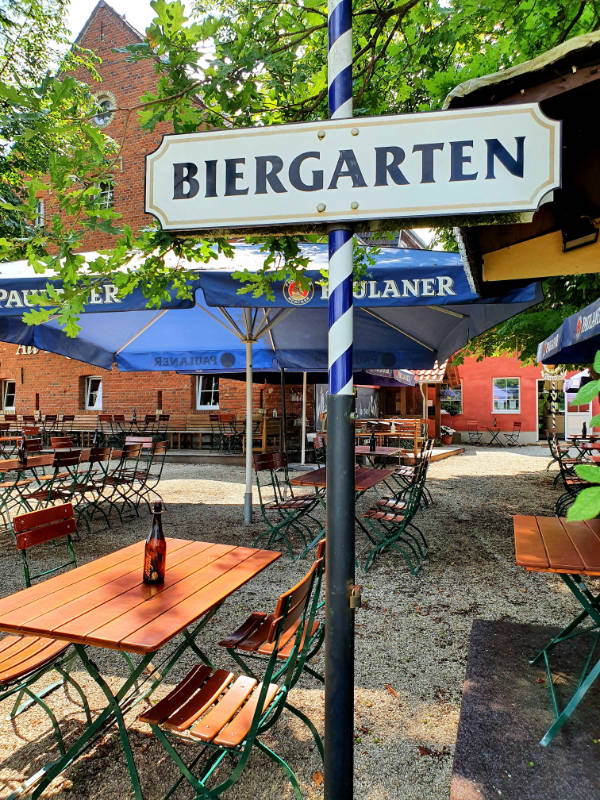
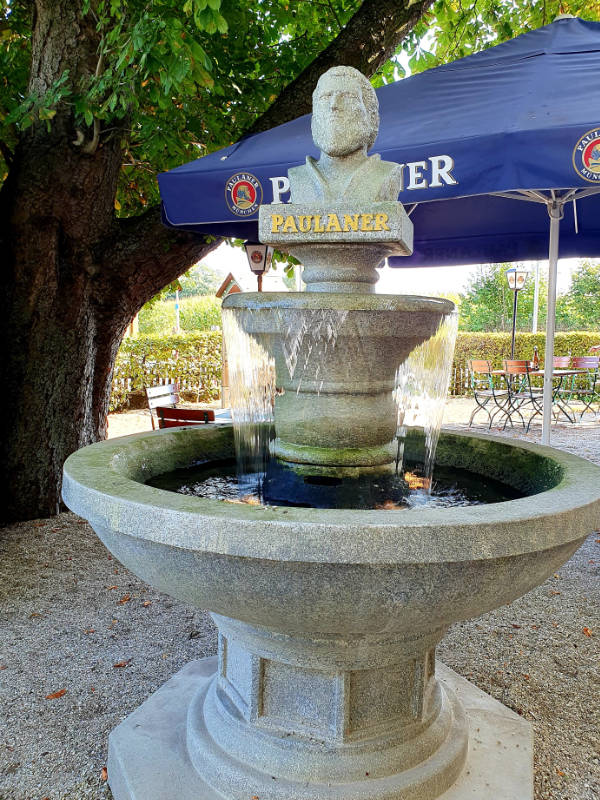
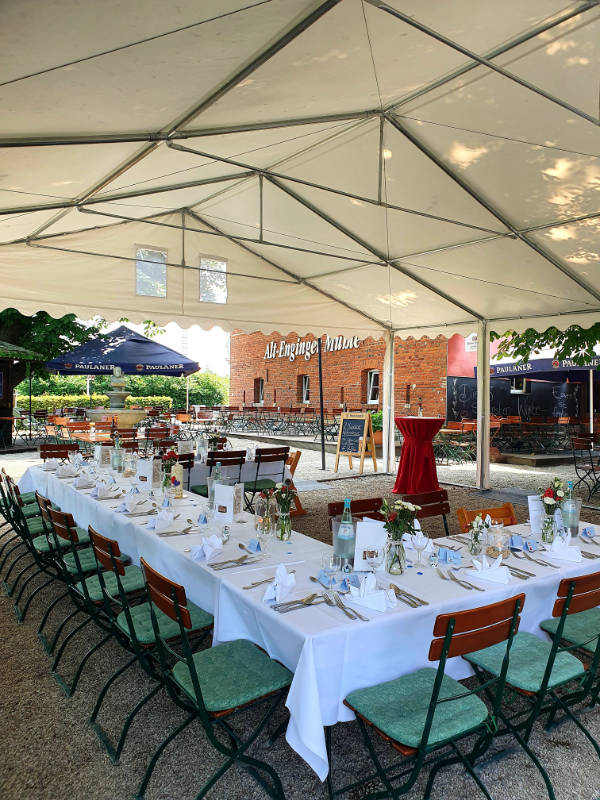
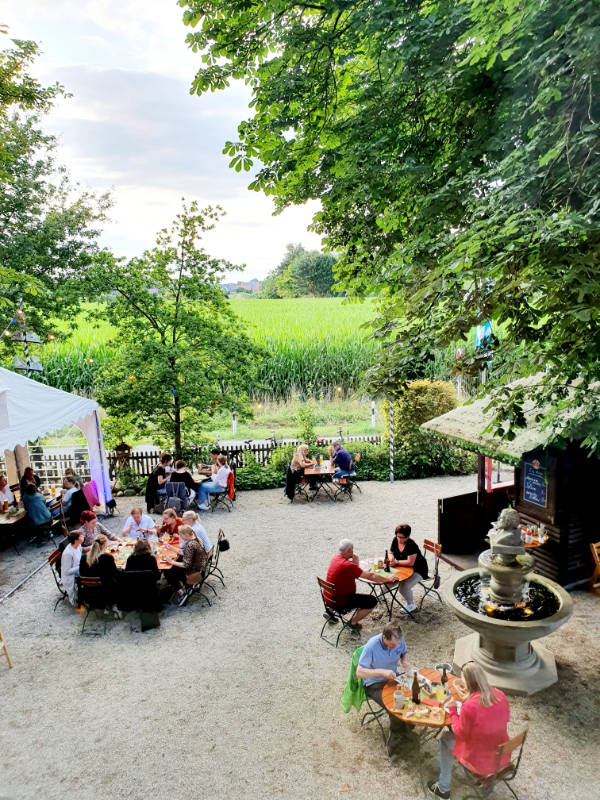
Our „Mill room“ can be used as a meeting and conference room. The conference table offers seats for up to 12 people.
The „Mill room“ is equipped with flip chart and screen with HDMI cable.
We have pleasure to invite you to constructive meetings, creativity and listening.
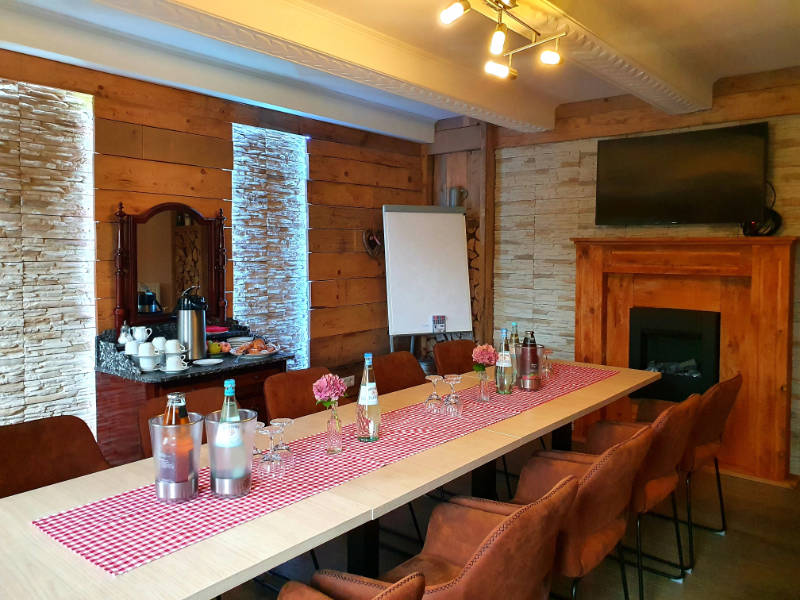
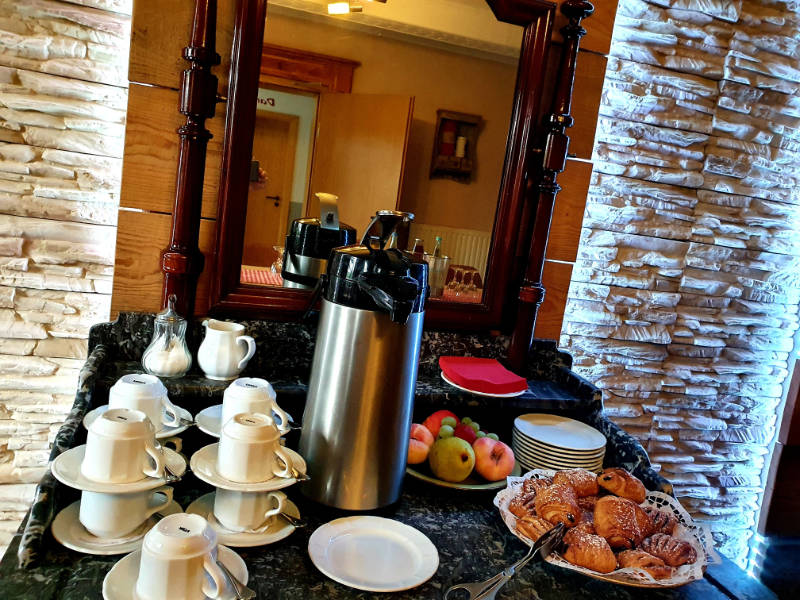
We have pleasure to invite you to constructive meetings, creativity and listening.
Here, you will find the ideal conditions to make your conference a success
As covered by the history writer Wilhelm Hucke in the Elsener country book the Bishop of Paderborn has donated „the fisch pond” of Helsen (Elsen) including a mill to the monastery Abdinghof. Name and age of the mill were not mentioned, but its existence.
Centuries later, several mill landlords have been mentioned in historical scripts such as:
1630 Liborio’s Linnenbrink "zum Altenging"
1673 his wife as widow of the died miller Linnenbrink "in Altenginge"
1679 Wilhelm Theodor Linnenbrink, called Valcop, "Altenginger zu Elsen"
1709 Rötger Linnenbrink, "Müller zum Altenging"
The designation "zum Altenging", "in Altenginge" or "Altenginger zu Elsen" are changing appellations in ancient certificates. The ancestry of the name plays an important role for researches of the mill’s age.
According to the well-known philologist Prof. Dr. Josef Brüggemann (Mühlheim/Ruhr) associate literary editor of the „Stein’sche History book“ and distinguished classicist of the westphalian dialect, the appellation “Altenginge” is referencing to the clan of the “Engern”. "Altenginge" is explicit for „Alt-Engingen", which means as much as Alt-Engern. The Engern-clan were cultivating as „Angrivarier“ down to the river Weser, crossing the „Teutoburger Forest” and were excelling the leading element in the times of Saxon’s wars between Eastphalia and Westphalia. Not only that they settled at the springs of the rivers Ems and Lippe, but also in the country of Paderborn, Warburg and Marsberg, denoted as “Southern Engern country” by the church historican Dr. Wurm. Charlemagne assigned their proselytization to Abbot Sturmius of Fulda. The period after the Saxon’s wars has been the time of proselytization as well as the time of the first parish foundations with the old patronages of Dionysius (Elsen, Buke) and Landolinus (Boke) in the 9th century; and most likely the date of origin of the Engern-mill. The old ruins in the lower holding could be older than 1000 years even.
In 2000 the property was bought by Monika und Markus Wahden and renovated to the today’s hotel and restaurant “Alt-Enginger Mühle”.
